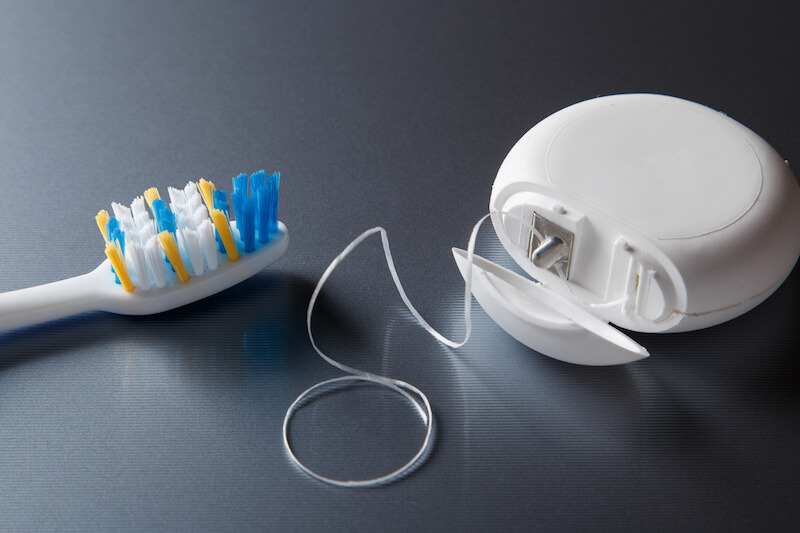
Nearly everyone knows that flossing is beneficial to their dental health, yet less than 14 percent of Americans claim that they floss regularly. With that stated, dentists are often reminding their patients about the importance of flossing at least once per day (we know we do). However, with all of the reminders, we are often asked a thought provoking question:
Which is better, string flossing or water flossing?
Before we go into the specifics, we have to admit that everyone will have their personal preference. So to be fair, we put together a few facts that will help you to make an educated decision. Whichever choice you make, Dr. Michelle Wang is a staunch advocator of daily flossing.
String Floss Theory
String flossing is designed to use a gentle string to loosen food particles that have attached themselves to teeth. This is especially useful when food is trapped between teeth or has found its way below the gum line.
In theory, string flossing works very well. In fact, when used effectively string flossing will eliminate a significant amount of decay. However, it is the human factor that becomes the problem. For those who prefer the hands-on approach, flossing presents no issue whatsoever. However, for most, flossing with a string is awkward. Getting the right head position, grip, and angle on each tooth takes some getting used to. This is why most give up altogether. Floss manufacturers have tried to make the act less cumbersome by creating floss picks that hold the string for you, but the result is nearly the same.
The Water Flossing Margin
In an ancient Chinese novel, The Water Margin, a group of rebels went against the status quo and were eventually accepted for their valor. Water flossing has taken a similar approach. It’s a completely different way of flossing and requires less human work. You simply point and shoot a powerful stream of water at your teeth to remove food particles. One disadvantage of water flossing is that it is several times more expensive than string floss. However, water flossing has the distinctive advantage of removing biofilm (a thin layer of super plaque) and impacted plaque.
So which it better? Well, we’ll leave that decision to you. One has to consider price, their hand dexterity, and other preferences.
